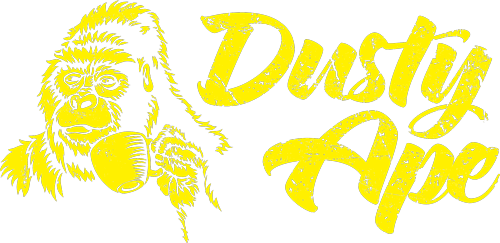
Many of the farmers that supply our speciality coffees do not partake in fair trade certification. This is because FT certification carries a significant cost and doesn’t offer any significant benefits in speciality coffee…
The most frustrating thing about Fair Trade is that consumers are lead to believe that it’s the ultimate goal – but in coffee it should be the star point. Specialty coffee costs much more than the minimum price set by fair trade organisations.
'Fair Trade'
Fair Trade sets a minimum price for green (un-roasted) coffee - at the time of writing - $1.40 per lb. Fair Trade is designed to protect growers against community market fluctuations. Conventional coffees are heavily influenced by the C-Price (futures commodity price taken from the International Coffee Exchange), currently at record lows. This is very volatile and affected by production volume, demand and speculation on future coffee prices. A report out this year surveyed many countries and found that the average cost to produce coffee is between $1.05 - $1.40 per pound. This means that coffee producers are generally losing money. Companies with big buying power such as Nestle, Douwe Egberts, Starbucks, Costa, Nero etc account for 40% of all coffee sold in the UK so it’s a very good thing for people to insist on Fair Trade when buying lower quality coffees (especially instant or anything from the supermarket). Speciality are not directly influenced by the commodity / futures markets. Prices are set by authorised coffee tasters (Q-Graders), rarity and provenance/traceability. Fair Trade is not currently concerned with this.
Many people in the speciality coffee industry are criticised for not being sufficiently pro-Fair Trade because Fair Trade got too much good press and not enough was said about traceability, direct trades, relationship coffees and paying a sustainable premium price based on quality — and this is what speciality coffee is all about.
Speciality Coffee
Speciality coffee is defined as a coffee that scores more than 80 SCA points
(Speciality Coffee Associate points - as rated by a qualified Q-grader). It would be impossible to produce a coffee at this level of quality at or below the Fair Trade price, so most speciality coffee producers aren’t interested in paying for the cost of end-to-end certification.
So What About Dusty Ape?
We are not certified Fair Trade (for the reasons given above) and therefore we cannot use Fair Trade logos. However, most of our coffee are speciality coffees, generally 84 points or above — our current highest scoring coffee is 91.25 points.
However we do buy coffees that are FT certified, and we always maintain have fair-traded coffees in stock — 5 at the time of writing. We do this because some customers demand Fair Trade (and are not willing to listen to this kind of explanation), so we tell them it’s FT coffee and that we are not certified. Sometimes we buy coffees we enjoy the taste of and they just happen to be FT. However, the vast majority of our coffees exceed fair-trade requirements, but most of them aren’t certified. Our blends (ie. mixtures of different coffees) have some FT certified and some non-FT certified coffees and this will be down to the taste of the components. For example, we recently rejected a FT certified Brazil coffee in favour of a non-FT Brazil because it tasted much better. As is often the case the non-FT was more expensive! We also have to be competitive with our blends since these form the majority of our wholesale bsuiness, so it would be impractical for us to source only FT certified coffees, especially if they offer any flavour benefits. Greggs claim that all their coffee is FT.... but have you tried it?
In Summary
Some of our coffees happen to be Fair-trade certified, but it’s not a key buying decision at Dusty Ape. Don’t confuse Fair Trade with quality or ethical — most speciality coffees are traceable and will have earned the farmer more than FT price. Because of the C-Price is so low at the moment, commodity farmers are turning to other cash crops such as Coca and this in turn is increasing demand (and therefore price) for 80+ points cofffees which is driving up specialty prices.
Don't think I'm dismissing Fair Trade organisations -- they play an important role in ensuring large-scale coffee suppliers don't exploit farmers. If you buy from cafe chains, instant, or plain supermarket coffees -- do buy fair-trade (but why are here reading this!?).
Further Reading
Here are a couple of good videos on the subject of Fair Trade. The Fair Trade Shell Game by Voactive is a good introductory watch — including some thoughts from Colin Harman champion barista and now a key player in one of the biggest online speciality companies HasBean. Is FairTrade Fair by Victor Claar gives far more detail on how Fair Trade may not be delivering even to the commodity market. It illustrates how successful the Fair Trade marketing has been and just how much money is charged by FT the organisation (none of which goes to farmers!). I really liked his closing comments and suggestions.
